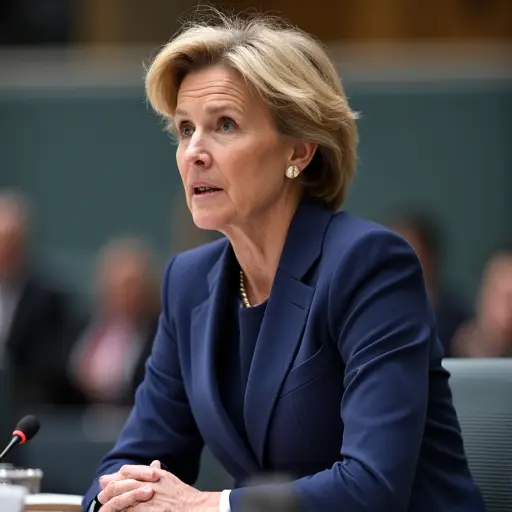
European Commission President Faces No-Confidence Motion
Ursula von der Leyen delivered a fierce defense of her leadership during a contentious European Parliament debate sparked by a no-confidence motion. The Commission President characterized the motion as a far-right attempt to rewrite history using conspiracy theories.
Allegations of Authoritarian Governance
Radical right Romanian MEP Gheorghe Piperea initiated the motion, accusing von der Leyen of implementing "totalitarian policies" reminiscent of Soviet-era governance. The immediate catalyst was von der Leyen's refusal to disclose private text messages exchanged with Pfizer CEO Albert Bourla during COVID-19 vaccine negotiations.
"We must call this what it is: a crude attempt to drive a wedge between our institutions, between the pro-European, pro-democratic forces in this House," von der Leyen declared to prolonged applause from centrist factions.
Transparency Questions Unanswered
While acknowledging personal communications with Bourla, von der Leyen sidestepped demands for message disclosure, maintaining that vaccine contract negotiations involved joint decision-making with member states. "There are no secrets," she asserted, comparing the Pfizer exchanges to consultations with epidemiologists.
Centrist Criticism Despite Support
Despite backing von der Leyen against the motion, centrist parties voiced significant concerns. Liberal leader Valérie Hayer questioned the Commission President's political alliances, asking: "Who are your real friends?" Socialists and Greens joined in criticizing von der Leyen's leadership style while confirming they'd reject the no-confidence vote.
Strasbourg Showdown
Von der Leyen appeared at the Strasbourg session flanked by all 26 Commissioners, symbolizing collective responsibility. The debate featured unusual interruptions and jeering from far-right benches as she exceeded her speaking time by 200%. Thursday's vote requires a two-thirds majority to oust the Commission, an outcome considered unlikely given centrist support.

 Nederlands
Nederlands English
English Français
Français Deutsch
Deutsch Español
Español Português
Português


